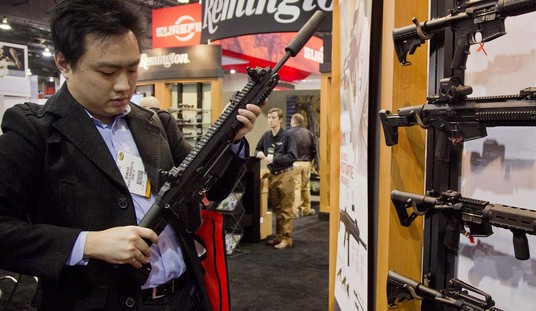A firearm is an inherently dangerous object. It's not overly dangerous so long as you treat it with respect, but it's not exactly something that is perfectly safe no matter what you do. That's kind of the point of a gun in the first place.
Over at Psychology Today, where they tend to rail against guns all the time, they posit a question: What if guns were safer?
Now, my first response to this was to roll my eyes. Anytime someone who knows nothing about guns decides to step in and tell us what guns should and shouldn't be, it's been absolutely hilarious in its absurdity.
I took a moment to think, though, before going any further. You see, sometimes, people from outside of a given bubble can see solutions that the rest of us don't. We become entrenched in what was and we can't envision what could be. So, I decided to continue reading and see what they suggested.
Except, that's all they offer:
Rather than focusing on removing widespread access to guns, Americans may find more common ground by increasing gun safety. This harm reduction model has been used to reduce the lethality of other means, with a famous recent example being the Golden Gate Bridge.
In January 2024, construction of a suicide safety net was completed on the Golden Gate Bridge, where approximately 30 people die by suicide per year (Golden Gate Bridge, Highway and Transportation District, 2024). This safety net was installed in response to research by Seigan (1978) that 94 percent of survivors of suicide attempts at the Golden Gate Bridge did not go on to attempt suicide again in a 26-year follow-up.
The recent completion of the Golden Gate Bridge safety net and the recent increases in suicide by gun make this an opportune time to brainstorm methods of preventing suicide by gun. Despite the many challenges in approaching gun safety and suicide prevention, psychologists may provide unique and effective novel approaches given our training in promoting safety and well-being, respecting rights and dignity, and centering cultural responsiveness and humility.
We can learn from the Golden Gate safety net as we develop culturally competent methods that similarly balance our clients’ values with their safety. We will expand on how to use a cultural competency framework with gun safety in a follow-up article.
The authors also bring up changing the kind of gas used in homes--from potentially deadly coal gas to natural gas--having an impact on the suicide rate as another example.
And this is probably a more productive approach than calling for gun control that won't really do all that much to prevent suicide anyway, especially as many gun suicides are people who already had firearms.
The authors say they will follow up later with specifics, but until then, we have to wonder just what they think will work.
Changing the kind of gas piped into people's homes had almost zero impact on the use of their ovens. Safety nets on the Golden Gate Bridge have no impact on people's ability to use the bridge for their day-to-day commutes or their enjoyment of the landmark. These were innocuous changes that really didn't impact much of anything except for the suicide attempts.
But I'm at a loss to imagine how you can make a firearm less useful for suicides while leaving it useful for things like self-defense.
After all, if the goal is to delay a weapon's use to prevent suicide, you're also delaying its use when a home invader threatens an individual or their family. If you're trying to somehow undermine the lethality of a firearm itself, how can you hope to use that firearm to defend yourself from someone who wants you dead badly enough that only lethal force will stop them?
I respect that the authors are looking outside of gun control for solutions to suicide and it's something I hope more of their colleagues will consider doing in the future. However, I'm at a loss as to just how they could possibly look at guns and make them less viable as a method for suicide without impacting their viability for the very reasons most of us own them in the first place.








